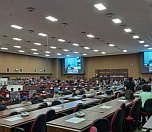Click to read the article in Turkish
The 28th hearing session of the 2nd session of the Kobani trial was held at the Ankara 22nd Heavy Penal Court in the Sincan Prison Campus.
In the trial, 108 individuals, including former Co-Chairs of the Peoples' Democratic Party (HDP) Figen Yüksekdağ and Selahattin Demirtaş, former Co-Chair of the Democratic Regions Party (DBP) Sebahat Tuncel, HDP Honorary Chair Ertuğrul Kürkçü, and members of the HDP Central Executive Board, are standing trial.
The indictment, consisting of 3,530 pages and 324 folders, seeks penalties for 108 politicians for various offenses, primarily including "undermining the unity and territorial integrity of the state" and 37 counts of "murder."
Yorulmaz: "Continuous hearings have turned into torture"
Speaking in today's hearing, Bircan Yorulmaz, former member of the Central Executive Board of HDP, stated that the uninterrupted hearings have victimized both themselves and their lawyers, turning it into a "torturous" process.
Yorulmaz noted that the Kobani trial is attempting to absolve ISIS and stated, "This is neither legally nor morally correct. The prosecutor of our case seems as persistent as the prosecutor who prepared the indictment. If we are going to discuss this case, we must first talk about ISIS. ISIS is not mentioned in the indictment. We know that this has been done deliberately. ISIS has committed numerous massacres in Turkey and around the world. It is our duty is to stand by the oppressed, and against ISIS."
"Closing the border to Kurds and opening it to ISIS"
Yorulmaz mentioned the massacre committed by ISIS in Shengal, where around four thousand people were killed and many women were abducted and subjected to rape, with many being enslaved. She stated, "They distributed women like a lottery. Women were sold for 50 dollars, and children for 35 dollars. The whole world watched this. It has also been revealed that women and children were sold through a virtual system. This was done through the contact offices in Turkey. These offices were located in Gaziantep. We also learned later that, ISIS commanders abducted Êzidî women and took them to Ankara and raped them for years."
"ISIS used weapons from Mosul to reach the Kobani border. If ISIS had taken control of the area, 200 thousand people could have been killed. People were protesting at the border. They were demanding the opening of a humanitarian corridor. HDP also provided humanitarian aid. Negotiations were ongoing between HDP and government and state officials. Then Prime Minister Ahmet Davutoğlu stated, "We do not support ISIS. We will be with Kobani and the Kurds." The humanitarian aid requests of the PYD were sent many times. Such humanitarian aid efforts were possible thanks to the collaboration between PYD and Turkey." Yorulmaz reminded the court.
"It's not a massacre, it's a plea for help"
Yorulmaz talked about the increase in protests on October 6 and the deaths that occurred after President Erdoğan's statement, "Kobani is about to fall," on October 7. She responded to the accusation about her receiving an e-mail from PYD.
Yorulmaz read the e-mail and said, "This is seen as an instruction sent to the HDP. Where in the email I just read does it say to burn homes and workplaces, divide Turkey, and kill people? It is a warning e-mail sent to stop the massacre that ISIS could carry out in Kobani. This e-mail contains a warning to everyone it was sent to: "There will be a massacre, help," it says. "This e-mail has no direct relationship with the tweet shared by HDP." Yorulmaz added.
"Süleyman Şah Tomb was moved"
Referring to the expert report prepared regarding the e-mail, Yorulmaz emphasized that the e-mail was sent not only to the HDP but to many institutions as well. Yorulmaz stated, "Then it becomes inevitable to explain the relationship between PYD and Turkey. I have mentioned this before. During that period, Turkey's relationship with PYD is also evident as seen in open sources. At this stage, many meetings took place between Salih Muslim and Turkey. An agreement was reached between Turkey and PYD, and a joint operation was carried out, and the Süleyman Şah Tomb was moved. Ajoint operation was performed."
Yorulmaz stated that after the expulsion of ISIS from Kobani, then Prime Minister Ahmet Davutoğlu made a statement saying "We salute Kobani," and PYD officials responded to this greeting. Yorulmaz said, "We cannot evaluate the case without seeing the relationship between Turkey and PYD during that period. In the context of such intense relationships, my colleagues and I are being tried based on a single e-mail. You cannot judge what happened during that period, seing it from today's perspective. A letter was received stating that PYD was not on the 'terror' list at that time. You cannot judge us based on the role assigned to PYD today."
"AKP and MHP rejected 14 motions"
Yorulmaz, underlined that standing against massacres is written in HDP's bylaws, asked, "Isn't it enough to say that the HDP, located right next to Urfa, held talks with the state first to prevent a massacre in Kobani and then made statements so as not to remain silent? Moreover, the Solution Process was ongoing during the same period. In this framework, the HDP could not take a single step that would disrupt the peace. At least 14 motions submitted by the HDP regarding the identification of the killers of those killed in Kobani incidents were rejected by the ruling parties AKP and MHP. Doesn't this say enough?"
"I am being tried because I am an HDP member"
"I believe that HDP's continued presence in Turkish politics is crucial for different identities. I am standing trial because I am an HDP member. The whole world knows that we are being tried because we seek a fair and peaceful solution to the Kurdish issue. Do not become complicit in this setup. Put an end to the persecution against us for being part of the HDP.
We are facing a trial with an indictment and a case opened by a judge who has been shown to be part of a gang. We have been targeted since the beginning of the investigation. How will the damages thus caused be compensated?
Release our colleagues. You consider the failure to comply with judicial control as a reason for the detentions to continue. However, there is also judicial control on my behalf, and I am here now. Why are you only referring to negative things? I stand before you as evidence in favor."
What happened in the Kobani protests?
The 2014 Kobanî protests are large-scale rallies by pro-People's Defense Units (YPG) protestors in Turkey in the autumn 2014, in reaction to the siege of Kobanî launched by the ISIS. Large demonstrations unfolded in Turkey, and quickly descended into violence between protesters and the Turkish police. Before the protests, those who were waiting in the district of Suruç, Urfa in southeastern Turkey and wanted to cross the border to enter Kobani were intervened with pepper gas and rubber bullets. In the meantime, some pictures allegedly showing ISIS militia crossing the border of Turkey were published. The Suruç district of Urfa in Turkey and Kobani town in Syria are two Kurdish majority settlements on two sides of the border that are at a distance of 15 kilometers from one another. President and Chairperson of ruling Justice and Development Party (AKP) Recep Tayyip Erdoğan made statements indicating that they equated PKK with ISIS and one saying "Kobani is just about to fall". While the wounded coming from Kobani were kept waiting on the border, the wounded from ISIS were treated at hospitals. Several news reports in the press were published, reporting that "Kobani fell," refuted each time. After the People's Democratic Party (HDP) made a call to take to the streets against a possible ISIS massacre in Kobani, thousands of people protested in Kurdish-majority provinces as well as Ankara and İstanbul. While left parties also supported these protests, deaths occurred with the onset of police violence. Street conflicts ensued and 12 people were killed initially. A total of 42 people lost their lives from October 6 to 12, 2014. According to a report by the Human Rights Association (İHD), 46 people died, 682 people were wounded and 323 people were arrested in the protests held between October 6 and 8, 2014. As reported by the Anadolu Agency, 31 people lost their lives, 221 citizens and 139 police officers were wounded. |
(AS/PE)




.jpg)
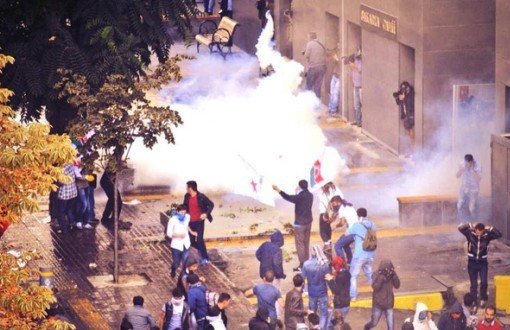
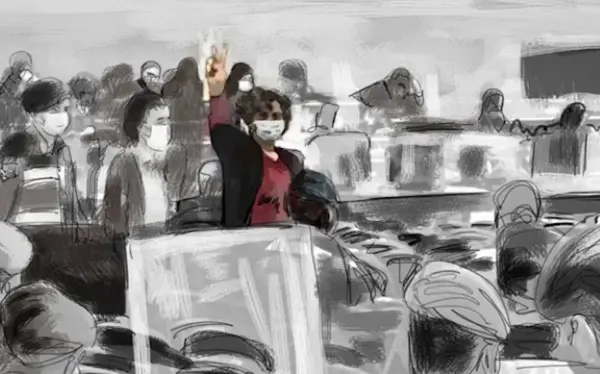
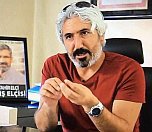
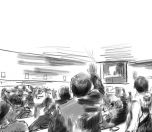
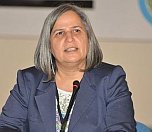
.jpg)
